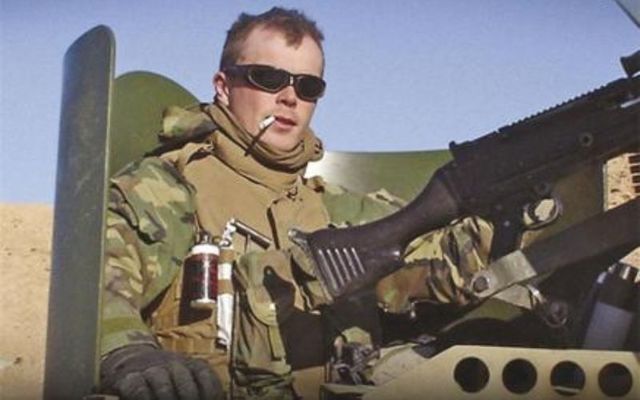Graham Dale, a native of Raheny, Dublin who emigrated to the US more than 20 years ago, reportedly died fighting alongside the Ukrainian army last Friday, December 8.
The details of Dale’s death in Ukraine are not immediately known, but Ireland’s Department of Foreign Affairs said it is aware of his death and is providing consular assistance.
According to The Irish Times, a friend of Dale's posted on social media "with a heavy heart" announcing the Irish man's death.
“If you knew Graham, you might already be aware that, when the conflict in Ukraine began, he flew over to offer his assistance," his friend wrote.
"He eventually joined the Ukrainian army and tragically lost his life on Friday, December 8th.
“He left this earth exactly the way he wanted to.
"His remains are being transported back to his homeland in Ireland.
"He was the cigarette-smoking, Busch Light-loving marathon runner. The world traveller. The one that couldn’t ask for help for himself so he searched for ways to aid others.
"Graham was not just a friend; he was a brother and a protector.”
After securing a green card, Dale emigrated to the US from Ireland, where he had been a member of Fórsa Cosanta Áitiúil (FCA), in 2000. A year later, he enlisted in the Marines after the 9/11 attacks and went on to serve in Iraq.
In 2008, Dale wrote "The Green Marine: An Irishman's War in Iraq" alongside Irish journalist Neil Fetherstonhaugh.
The synopsis of the book says: "Dubliner Graham Dale, an IT specialist living in Texas, was working as a volunteer with a fire department when he heard that an airplane had hit the World Trade Centre in New York.
"As the tragic events unfolded before his eyes, he suddenly realized that he could no longer remain a spectator in the face of this appalling atrocity. There and then he made a decision that was to affect the rest of his life; he drove to the nearest Military Recruitment Centre and enlisted in the US Marines.
"After surviving months of ‘constant mental and physical torture’ in the notoriously tough ‘Marine Boot Camp’ in San Diego, he joined the ranks of one of the most elite branches of the United States military and two years later found himself patrolling the dangerous wastes of the western desert in war-torn Iraq.
"Throughout his deployment in Iraq, Dale kept a daily journal to give us an astonishing, true account of one man’s fight in the frontline of America’s ‘War on Terror’.
"Told with brutal honesty, he gives us a unique and rare insight from an Irishman, fighting for a foreign military in a very foreign land."
Dale's platoon was hit by a suicide bomber in 2005, an experience that left him with Post-Traumatic Stress Disorder (PTSD).
"When my friend got killed, that was the hardest," Dale told the Irish Independent in 2008. "It's still difficult. Things like that just don't happen every day."
Dale said that despite the PTSD, he was "pretty glad, or content" with the path he had taken.
"I wouldn't take it back. I don't necessarily recommend that way of life, but for me, I stand by the decisions I made."
At the time of his 2008 interview, Dale was back living in the US in, what he called, "one of those anonymous suburbs with a white picket fence" and was thinking about settling down.
In May 2022, however, Dale told local Texas news outlet KXAN that he quit his job, without the customary two weeks' notice, to head to Ukraine to assist the efforts against Russia.
“This is somewhere that I’ve been to on vacation before, I know people from here,” Dale told KXAN.
“To me, this is an attack on all of Europe and I felt compelled with my current skillset and so forth that I could help in any way that I could.”
Dale said had initially planned to assist with the wave of fleeing refugees in Poland, but once there, he said he realized his help was needed more inside the war zone.
At the time of the KXAN report, Dale had most recently been in Dnipro in the eastern part of Ukraine.
Dale said in Ukraine, he met up with a team of other military veterans from both the US and Europe to deliver humanitarian aid, including to orphanages and hospitals.
“We’re providing assistance, we’re making people’s lives more tolerable,” Dale said last year.
“Particularly with the food and medicines that we’re getting delivered to the places that really need them.”
The Irish American said at the time that he’d stay in Ukraine as long as he was needed and would like to transition from a volunteer position to a full-time job.
“You realize that you are the boots on the ground, you are that line in the sand,” Dale said.
“There is no magic government button that presses and millions of resources make themselves available.
"Generally speaking, it’s civilian volunteers stepping up to the plate.
"(They) are the ones that help most with the people during and after these kinds of disasters and wars.”




Comments